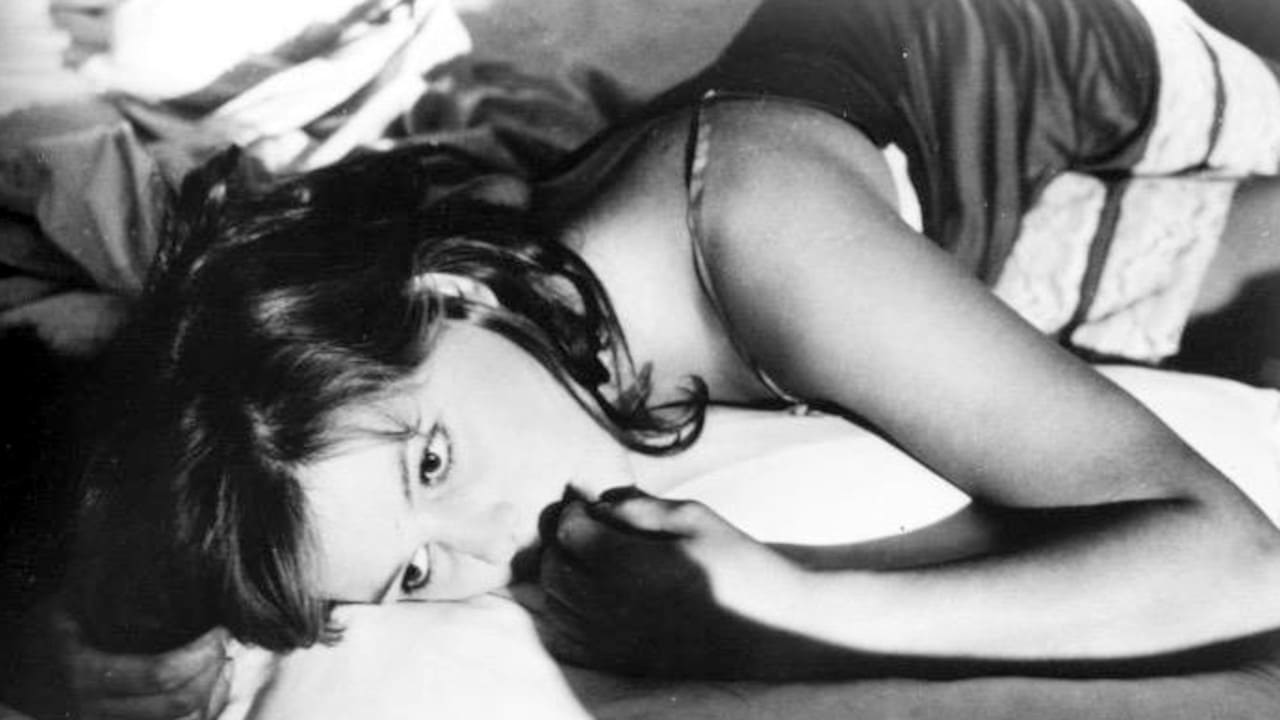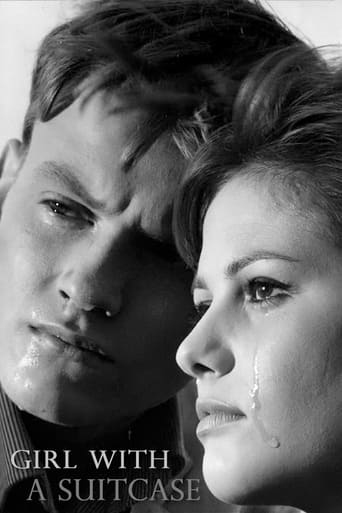

You won't be disappointed!
... View MoreWonderful character development!
... View MoreExcellent characters with emotional depth. My wife, daughter and granddaughter all enjoyed it...and me, too! Very good movie! You won't be disappointed.
... View MoreGreat story, amazing characters, superb action, enthralling cinematography. Yes, this is something I am glad I spent money on.
... View MoreThat anyone could categorize this film as a "...somewhat mediocre and meandering melodramatic film by Zurlini" is sad.I suppose, one must be sympathetic a bit to Italian culture at the time of the film to understand the simple truths of a beautiful woman who is unable due to circumstance, lack of education, and her own character, to hold onto the very few and dubious chances life presents to improve her situation.With only her beauty as both spoiler and advantage a beautiful but simple woman is on the tide of personal ruin in every choice she makes. We hope and are torn for her as we watch each scene knowing the razors edge she is living on while those around her continue to misunderstand and take advantage of her plight. This is a fantastic film (albeit 'little') that it's Nomination for the 1961 Cannes Golden Palm proves. If you can find it in Italian with sub-titles listen carefully to the actors even if you don't understand Italian. The simplicity of their performances is decades before it's time. For me it remains an unforgettable masterpiece.note: I would have rated it a "10" but some of the 'jump cuts' in the were one too many for my now '21-century' tastes.
... View MoreUnderrated and little known to the Hollywood mainstream, this is an oft-told unrequited story of a boy falling in love with a woman. Jacques Perrin plays Lorenzo a wealthy boy of about 16 years old falling in love with a poor, nomadic not-so-successful showgirl named Aida, played by Claudia Cardinale. Lorenzo becomes Aida's patron and guardian of sorts, looking after her as Aida doesn't fully appreciate the boy's attention and kindness until the end. Instead we see her gravitate towards men who promise her a job and attention, which many men will do to a beautiful girl. But they don't give her kindness but instead break promises. Aida thinks fondly of Jacques as help but like many girls, she thinks of it as that and simply friendship to be repaid. Lorenzo is the only person who treats her with dignity. At what point does she realize he loves her if she does? (But then I can't give you spoilers). It's a old-fashion romantic story without sex and romance. Just reality.Often mentioned as CC's first vehicle, this was actually her 15th film at a young age of only 22 when it was made. Jacques went on to a fairly successful film career which included Z and Cinema Paradiso and Claudia has had one of the longest film careers of any leading lady (over 50 years of consistently making films). Most of Claudia's movies are neorealist, dramatic roles suitable for arthouses and auteurs, rather the popular box-office hits. This film is not much different from her other films in how it approaches a love story from a neorealist view.Valerio Zurlini directs with simple taste, nothing fancy and uses simple sets to tell his story. Zurlini made few films but this is his gift for us, his masterpiece. With cinematographer Tino Santoni, the two crafted a beautiful black-and-white story highlighted by the two lead actors. Three scenes represent their skills best, namely: the scene on the swing as Aida sings to Lorenzo after they separate from the party. He gently puts her hand on hers and as he does, she never notices and we don't see the hand until we see her eyes and expression. Then the camera slowly pans down to their hands as she stops singing. That scene was simply brilliantly directed and acted. The second was the long beach scene, one of the finest and most touching in (Italian) cinema history. It was long silent scene of the two on the beach at dusk. Starting not romantic but as she tends to his cuts, they stare at each other and the camera and lighting was simply beautiful for the two young faces. In today's quick catchy, witty dialogues, we forget acting is the eyes and face. That scene and the final scene (if I wrote the details, it would be a spoiler, no?) at the train station were tributes to Italian chiaroscuro and Caravaggio, the art of dark and light. Like many Italian films, this film ends with a slight melancholic feel and without Hollywood closure.Claudia Cardinale is incredibly sexy and beautiful with little make-up and simple attires. It's amazing that she rarely dresses glamorously in her movies but still manages to show her beauty. She and Jacques give great performances. Compared to Sophia Loren or Gina Lollabrigida, Cardinale is a slightly better actress but many of her best roles were never mainstream Hollywood (and she didn't have that "English" accent Loren was able to master). She acts with her eyes, facial expressions and gestures extremely well.This was named one of the Ten Best Movies of the Year by the New York Times and also made their 1000 Best Films list. Girl with a Suitcase (La ragazza con la valigia) is still occasionally shown in arthouses and museums today.Similar films are Summer of 42 which is nostalgic 7/10, and more favorably I'd compare and recommend two other foreign films, Baran (French-Iranian) and Malena (Italian). I'd give Baran a 9/10 also which has incredibly beautiful scenes in a neorealist flair. The cinematography by Mohammad Davudi in that film directed by Majid Majidi is brilliant. Like Girl With a Suitcase, the plot is simply but the film is brilliant. Malena is cute, funny and touching with beautiful Monica Bellucci but simply not as good (7.5/10).
... View More... the one where Lorenzo watches Aida dancing with that older man. She was supposed to go to the movies with him but she chose to have dinner with a group of other guests at the hotel, and after dinner they start partying and dancing. At one point there is a close-up of Lorenzo that lasts for at least one minute. He looks at them dancing, looks away, takes a sip from his drink, fidgets, with all these different expressions on his face: jealousy, frustration, anger, discomfort, despair. No dialogue. Wonderfully acted and directed. That scene is worth more than all car chase sequences since the beginning of Cinema put together.
... View MoreZurlini introduces a familiar theme, a futile relationship with an older woman and a younger man, perfected in his later film `Violent Summer,' but here Aida, Claudia Cardinale, plays a nighclub singer who is jilted in the opening moments of the film and spends the rest of the film searching for a way out of the stereotypical relationship of a beautiful woman using, and being used by men, a dependent and unhealthy relationship. When Marcello, a cad who lives in a lavish estate, tells his 16 year old younger Lorenzo, Jacques Perrin, to get rid of the girl, the younger brother's interest turns from bewilderment to unbridled obsession, as the high-strung, free-spirited girl surprisingly is flattered by his attention and by her belief that he has money, contrasting the obvious class distinction between the two, he lives in a statue-filled estate with his family, she lives alone out of a suitcase in a hotel room. The adults in the film are overly stern and heartless, represented by the familiar Zurlini statues which can be seen throughout his entire body of work; this lifelessness is contrasted against the passion of youth. The relationship comes to a screeching halt with the intervention of the family priest who questions Aida's motives with such a young and impressionable boy, urging her to move on. This is a brilliant scene where they speak in what appears to be a museum construction area, broken statues lie about with other scattered debris as the priest tries to reconstruct the spiritual direction of the young lovers, urging them to go their separate ways. This leads Aida into the arms of another conniving man who attempts to seduce her with plenty of money and alcohol, but Lorenzo arrives, refuses to butt out, gets his butt kicked by the older man, which leads to this extraordinarily long, beautifully evolving scene on the beach where the two lovers are caught up in the mysteries of their own futility, a kind of existential despair, surrounded by the wonderment of nature. This film constantly shifts the focus on who is the victim and who is to blame, in the end there are no answers, just a continuous search.
... View More